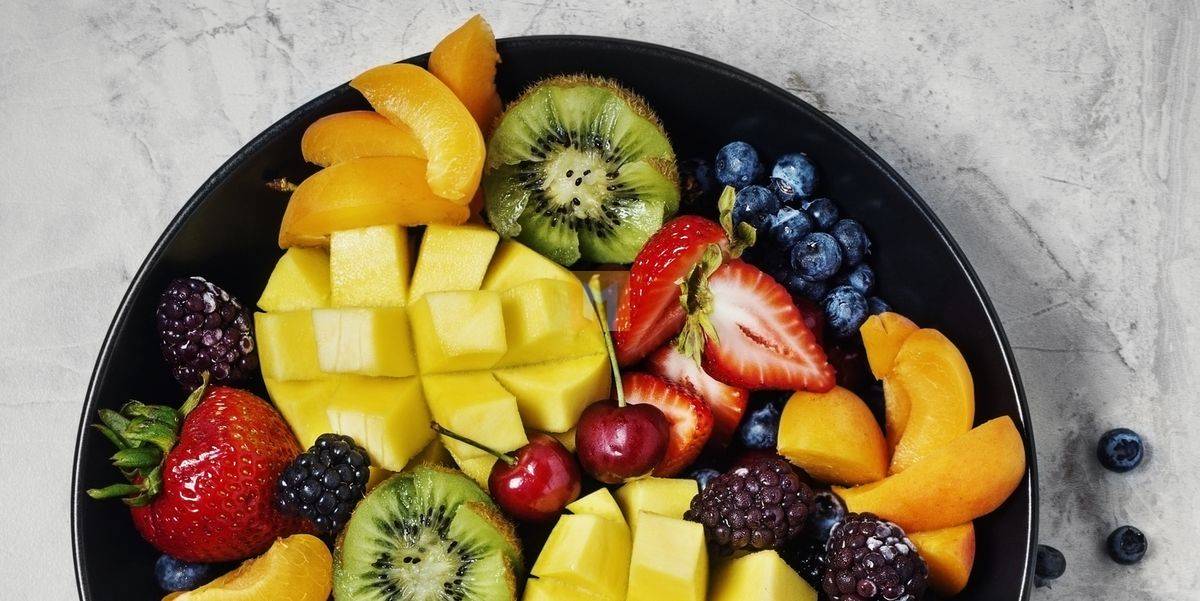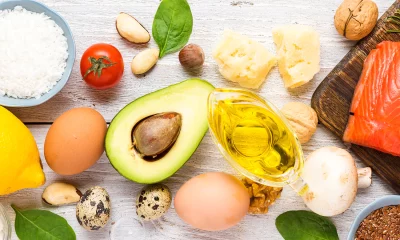Diet
What are the best foods for heart health?

There are many things you can do to keep your heart health and disease-free. You can schedule an annual checkup, exercise daily, quit smoking, or take steps to reduce stress levels in your life.
But one of the simple lifestyle changes that can benefit your heart is watching what you eat. Currently, about 6 million people have heart failure, and half of them die within 5 years of diagnosis.
The Centers for Disease Control and Prevention (CDC) warns that eating foods high in fat, cholesterol or sodium can be very bad for your heart. So, when taking steps to reduce your risk of heart disease, your diet is a good place to start.
In this article, we will take a look at the best foods that help maintain a strong and healthy heart.
-
Asparagus
Asparagus is a natural source of folic acid, which prevents the body from synthesizing an amino acid called homocysteine. High levels of homocysteine are associated with an increased risk of heart disease, such as coronary heart disease and stroke.
-
Beans, peas, chickpeas, lentils
Beans, peas, chickpeas, and lentils (also called beans or legumes) can lower low-density lipoprotein (LDL), or “bad” cholesterol levels. They are also rich in heart-healthy fiber, protein and antioxidant polyphenols.
-
The strawberries
Strawberries also contain antioxidant polyphenols that may help reduce your risk of heart disease. Strawberries are a great source of fiber, folic acid, iron, calcium, vitamin A and vitamin C, and are low in fat.
-
Broccoli
Some studies suggest that regular consumption of steamed broccoli may lower cholesterol and prevent heart disease.
-
Chia seeds and flax
These seeds are rich in plant sources of omega-3 fatty acids such as alpha-linolenic acid. Omega-3s have many beneficial effects, including helping to lower triglyceride, LDL, and total cholesterol. It also lowers blood pressure and reduces plaque buildup in the arteries.
Omega-3s reduce the risk of conditions that can lead to heart attacks, such as thrombosis and arrhythmias.
-
Dark Chocolate
Dark chocolate is a rare example of a food that tastes good and is healthy (in moderation).
Scientists believe that dark chocolate has a protective effect against atherosclerosis, which occurs when plaque builds up inside your arteries, increasing your risk of heart attack and stroke.
Dark chocolate appears to prevent arteries from hardening and white blood cells from sticking to blood vessel walls, two mechanisms involved in atherosclerosis.
Furthermore, studies have shown that increasing the flavanol content of dark chocolate (the compounds that make dark chocolate more palatable and appetizing) does not reduce this protective effect.
-
Coffee
The coffee also falls into the “too good to be true” camp. Recent studies have linked regular coffee consumption to reduced risk of heart failure and stroke.
However, it is important to note that this study, which used machine learning to analyze data from the Framingham Heart Study, could only observe correlations between factors and not conclusively identify cause and effect.
-
Omega-3 Rich Fish
Fish is an important source of omega-3 fatty acids and heart-healthy protein, but it is low in saturated fat. People with or at risk for heart disease are often advised to increase their omega-3 intake by eating fish. This is because it reduces the risk of abnormal heart rhythms and slows the growth of plaque in the arteries.
According to the American Heart Association (AHA), you should eat 3.5 ounces of oily fish such as salmon, mackerel, herring, trout, sardines or albacore at least twice a week.
-
Green Tea
A 2011 systematic review found that green tea consumption was associated with moderate reductions in cholesterol, a leading risk factor for heart disease and stroke. However, the review cannot determine how much green tea a person needs to drink in order to experience the health benefits.
Another study in 2014 looked at the effects of green tea consumption on people with high blood pressure. The report concluded that green tea is associated with lowering blood pressure. However, the authors could not determine whether these small reductions would help prevent heart disease.
-
The nuts
Almonds, hazelnuts, peanuts, pecans, pistachios and walnuts are all heart-healthy nut options. These fruits are rich in protein, fiber, minerals, vitamins and antioxidants. Like fish and flaxseed, walnuts are high in omega-3 fatty acids, making them a heart-healthy snack.

-
Liver
Of all organ meats, liver is the most nutritious. In particular, liver is rich in folic acid, iron, copper, and zinc, which increase hemoglobin levels in the blood and help keep the heart health.
-
Oatmeal
Because oatmeal is high in soluble fiber, it may help reduce the risk of heart disease. A 2008 review of the evidence concluded that oat products significantly lower LDL and total cholesterol without adverse effects.
-
Red wine (kind of)
Many studies have noted the potential health benefits of antioxidants in red wine. However, the benefits of antioxidants do not outweigh the risks of alcohol.
But recent new research suggests that these same antioxidants could form the basis for new stents used during angioplasty, a procedure that widens narrowed or blocked arteries to treat atherosclerosis.
The researchers behind this study are now developing a new type of stent that releases red wine-like antioxidants into the bloodstream to promote healing, prevent blood clots and reduce inflammation during angioplasty.
It is important to remember that drinking alcohol in general is not good for your heart health. In fact, drinking alcohol in moderation is very important for heart health.
-
Spinach
Regular intake of a good source of magnesium can help maintain a healthy heart rate. Spinach is one of the best sources of dietary magnesium, and eating Poppy’s favorite foods is associated with many health benefits.
-
Tomatoes
Tomatoes are rich in nutrients that help keep your heart healthy. Red berries are heart-healthy as they are high in fiber, potassium, vitamin C, folic acid and choline.
In addition to preventing heart disease, potassium is beneficial for muscles and bones and helps prevent kidney stone formation.
Scientists have argued that increasing potassium while reducing sodium is the most important dietary change to reduce the risk of heart disease.
-
Vegetables
The AHA recommends eating at least eight servings of fruits and vegetables per day. Vegetables are low in fat and calories but high in fiber, minerals and vitamins. A healthy amount of fat in your diet can help control your weight and blood pressure.



















